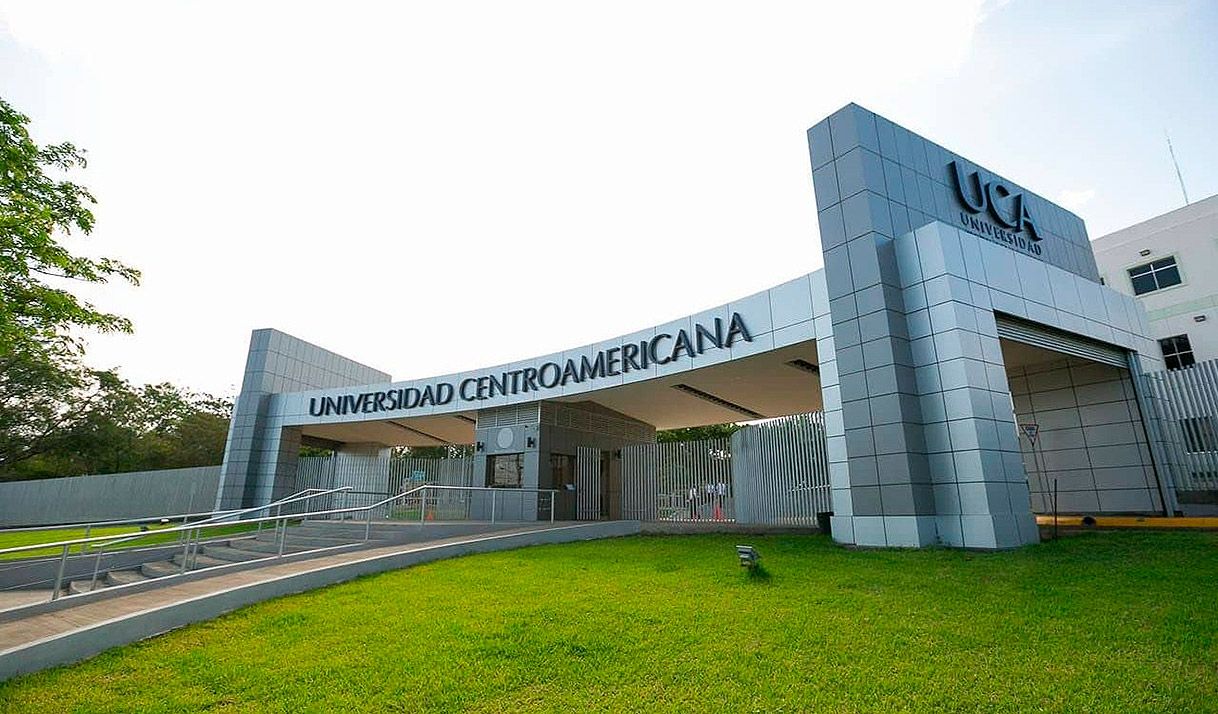In August 2023, Daniel Ortega’s authoritarian regime seized the Central American University (UCA) in Managua, expropriated the building where religious members working at the educational center were living and annulled the legal status that allowed the Society of Jesus to run the financial side of the institution. The Ortega-Murillo dictatorship’s harassment of the Jesuit run center began in 2018, when the religious directors stood by students who took part in anti-government protests in May that same year.
The Nicaraguan Government began a long process of annihilating private universities in general, and especially the UCA. In the first stage of persecution, the UCA’s constitutionally allocated portion for universities from the state budget was cut.
This harassment should be seen within a cycle of religious persecution against the Catholic Church in Nicaragua, with colleges, convents and care homes being seized; religious orders being expelled from the country; different dioceses’ bank accounts being frozen; and the arrests of many clergy members – including Matagalpa bishop Monsignor Rolando Alvarez.
The Society of Jesus founded the Central American University on July 23, 1960, under the authoritarian rule of the Somoza family’s regime. Opening the higher education center was framed within the cycle of boosting educational impact that the Central American Province was pushing at the time, prompted by the intentions of Pope John XXIII and the II Vatican Council. The order also founded another two higher education centers in the region: the Rafael Landivar University (Guatemala, 1961) and the Jose Simeon Cañas Central American University (El Salvador, 1965).
These Jesuit institutions became epicenters of humanist thought and advocacy of human rights within the region. The following decades were besieged by the rise of military dictatorships and civil conflicts. The three Jesuit universities were openly targeted by authoritarian regimes, including the Somoza regime in Nicaragua and the regime in El Salvador. Persecution reached a climax with the murders of the Jesuit community at the University in El Salvador, in 1989.
The Cuban script
Nicaragua’s communist dictatorship’s strategy isn’t anything new and has an immediate precedent in the process that Fidel Castro developed against the St. Thomas of Villanova Catholic University in Cuba, between 1959 and 1961. The Cuban University was founded by Augustinian fathers (from the Villanova Province in the US), on August 15, 1946. The educational center became the key reference for private education on the island.
Under the rectorship of Augustine Priests James M. Hurley and John Joseph Kelly, the university was one of the epicenters of Catholic Action (a lay Catholic organization that actively participated in the anti-Batista struggle). Unlike other Catholic educational centers, the Spanish clergy were barely present in the institution, as the Augustine establishment in Cuba was linked to Villanova, where there was an extensive intellectual training at that time.
The Batista regime didn’t close the St. Thomas of Villanova University in 1956, unlike other educational centers. Meanwhile, Dean Father Kelly’s attitude wasn’t right, because while students formed part of the political opposition, the religious man was unable to understand and support the country’s socio-political needs.
The Catholic university became a space for political dissent after the Cuban Revolution triumphed and its political leadership later drifted towards authoritarianism – which limited university autonomy at public universities and had State Security agents infiltrate the Federation of University Students.
In June 1959, a student council demanded the dean, Father Kelly, resign, which happened a few days later. Father Eduardo Boza Masvidal was named in his place, a critic of the Batista regime and later the Auxiliary Bishop of Havana.
Villanova gradually became a place for dissent, which, combined with its academic excellence, bothered the revolutionary leadership as they moved closer and closer to the Soviet Union. The above triggered the beginning of a cycle of face-offs between the Cuban episcopate (led by Archbishop Enrique Perez Serantes) and the Government. Amid the dispute, a publicity strategy was launched that targeted the university as conservative and backward, as well as not agreeing with the Revolution. The over-simplifying accusation didn’t take into account the presence of many students and graduates in the anti-Batista struggle and hid the Castro brothers’ dislike of this dissident space that was the University.
During the May 1st Celebrations in 1961, Fidel Castro announced the seizure of every private school. The arrival of inspectors at the university was recorded in the testimony of Father Alberto Medina (the Director of Studies).
“On May 2nd, in the early morning, we were besieged and were held prisoner in the Rector’s Office, after a statement came from Fidel Castro. Government representatives came on the 5th and gave us an hour to abandon the University (…). Unbelievable harassment took place in the checks we were subjected to before leaving, with us as well as the religious women [1].”
Six decades later, the same political and repressive script is playing out. According to reports from close sources to the Society of Jesus in Nicaragua, the eviction of religious members from the Villa Carmen Convent took place by force and was sudden.
Just like in Cuba, a slander and public target strategy was used to spread fear among the teaching community involved in the universities’ day-to-day life. Both Villanova and UCA were private universities with a track record of academic excellence and a human rights-forward approach; the education they provided contributed towards a social reflection from an anti-authoritarian political sector.
The other similarity lies in accusations thrown at both universities, political subversion. Although in the case of the Jesuits at UCA, other financial crimes were also added: financing terrorism. But as the Superior General of the Society of Jesus, Father Arturo Sosa, wrote in a letter addressed to the Central American Province of the Order: “A just trial, with lawful justice, would cast a light on all of the schemes the Government has been involved in, from youth protests against the UCA in 2018, against many other of the Catholic Church’s work, and against thousands of civil society organizations so as to stifle them, close them down or appropriate them.”
The similarities in procedure against these Catholic universities remind us that if there’s one thing that worries dictatorships, it’s spaces where knowledge and social fabric are grown. What the Central American University is currently experiencing takes us back to the Cuban past and proves that the scripts of Stalinist dictatorships against educational diversity is the same as 60 years ago.
[1] Uria, I. (2011). Church and Revolution in Cuba. Enrique Perez Serantes (1883-1968), the bishop that saved Fidel Castro. Editorial Encuentro, Madrid, p. 480.


If you believe that our journalism is important for Cuba and its people, we want you to know that this is a critical moment.
Behind each publication there is a team that strives to ensure that our products meet high quality standards and adhere to professional and ethical values.
However, to keep a close watch over government, demand transparency, investigate, analyze the problems of our society and make visible the hidden issues on the public agenda is an effort that requires resources.
You can contribute to our mission and that is why today we ask for your help. Select the way you prefer to send us a donation.









comments
We moderate comments on this site. If you want to know more details, read our Privacy Policy
Your email address will not be published. Mandatory fields are marked with *